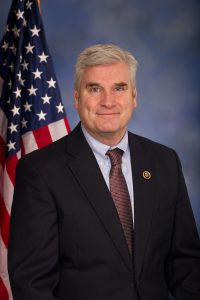
Several trading related bills made advances in their journey to become law.
The House Financial Services Committee that the full house had advanced eight bills and eight bills also advanced out of the committee.
In those sixteen are several pertinent to the trading industry.
Of the eight which passed the House, here are the most relevant to the trading industry.
H.R. 5749, the “Options Markets Stability Act,” sponsored by Rep. Randy Hultgren, who is a Republican from the State of Illinois, requires the prudential regulators to implement a risk-adjusted approach to value centrally-cleared exchange-listed derivatives as it relates to capital rules to better and more accurately reflect exposure and promote market-making activity.
This trading bill passed 385-0.

H.R. 5877, the “Main Street Growth Act,” sponsored by Rep. Tom Emmer, who is a Republican from the State of Minnesota, amends the Securities Exchange Act of 1934 to allow for the registration of venture exchanges with the Securities and Exchange Commission to provide a venue that is tailored to the needs of small and emerging growth companies and allow these qualifying companies one venue in which their securities can trade.
This trading bill passed by voice vote.
H.R. 5970, the “Modernizing Disclosures for Investors Act,” sponsored by Rep. Ann Wagner, who is a Republican from the State of Georgia, requires the Securities and Exchange Commission no later than 180 days after enactment to provide a report to Congress with a cost-benefit analysis of emerging growth companies’ use of SEC Form 10-Q and recommendations for decreasing costs, increasing transparency, and increasing efficiency of quarterly financial reporting by emerging growth companies.
This bill passed by voice vote.
H.R. 6139, the “Improving Investment Research for Small and Emerging Issuers Act,” sponsored by Rep. Bill Huizenga, who is a Republican from the State of Michigan, requires the Securities and Exchange Commission to carry out a study to evaluate the issues affecting the provision of and reliance upon investment research into small issuers, including emerging growth companies and pre-IPO companies.
This bill passed by voice vote.
Of the bills which passed the committee, here are the most relevant to trading.
:H.R. 3555, the “Exchange Regulatory Improvement Act”
Introduced by Representatives Barry Loudermilk, who is a Republican from the State of Georgia, and David Scott, a Democrat also from the State of Georgia, the “Exchange Regulatory Improvement Act,” as amended, requires the Securities and Exchange Commission to set forth the facts and circumstances it considers in determining what is a “facility” of an exchange.
H.R. 6177, the “Developing and Empowering our Aspiring Leaders Act”
Introduced by Representative Trey Hollingsworth, who is Republican from the State of Indiana, the “Developing and Empowering our Aspiring Leaders Act,” as amended, requires the Securities and Exchange Commission to revise the definition of a qualifying investment to include equity securities acquired in a secondary transaction.
H.R. 6319, the “Expanding Investment in Small Businesses Act”
Introduced by Representative Randy Hultgren (R-IL), the “Expanding Investment in Small Businesses Act” requires the SEC to study whether the current diversified fund limit threshold for mutual funds of 10% constrains their ability to take meaningful positions in small-cap companies.
H.R. 6322 , the “Enhancing Multi-Class Share Disclosures Act”
Introduced by Representative Gregory Meeks, who is a Democrat from the State of New York, the “Enhancing Multi-Class Share Disclosures Act,” as amended, requires issuers with a multi-class stock structure to make certain disclosures in any proxy or consent solicitation material.
H.R. 6324 , the “Middle Market IPO Underwriting Cost Act”
Introduced by Representative Jim Himes, who is a Democrat from the State of Connecticut the “Middle Market IPO Underwriting Cost Act” requires the Securities and Exchange Commission, in consultation with the Financial Industry Regulatory Authority, to study the direct and indirect costs associated with small and medium-sized companies to undertake initial public offerings.
The bills which passed the House now move to the Senate while those which passed the committee now need to be scored by the Congressional Budget Office, normally a formality for trading related bills, before being voted on by the full House.








